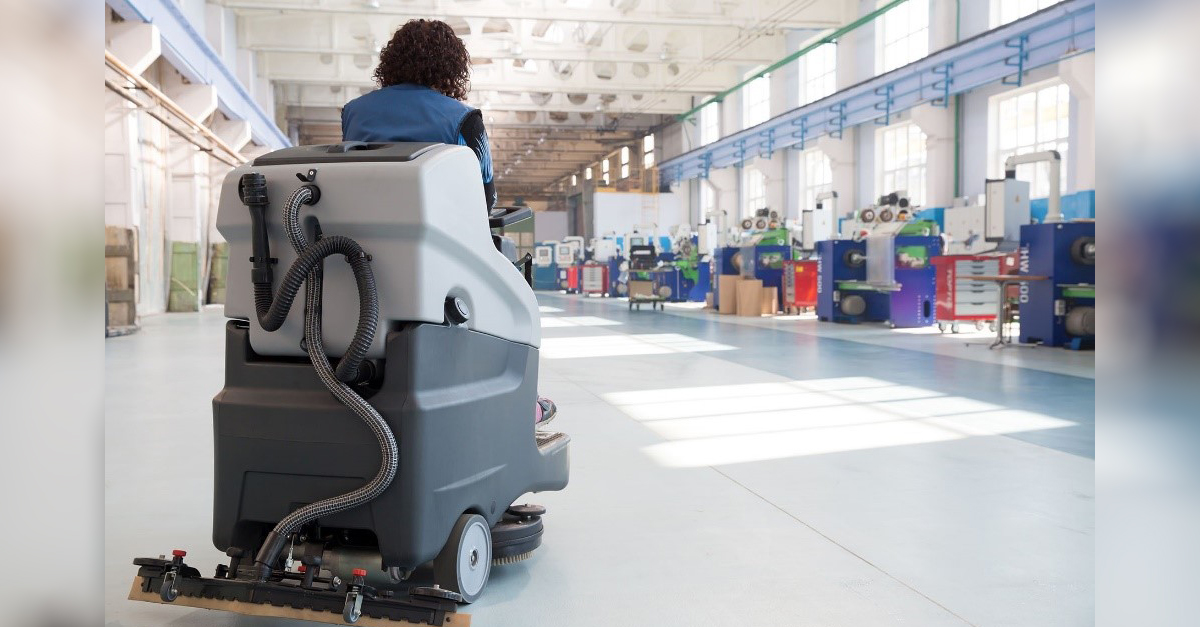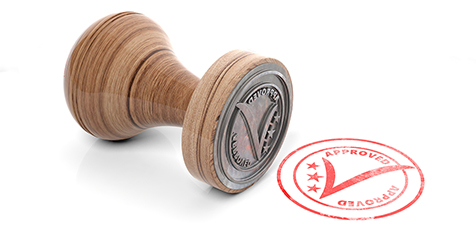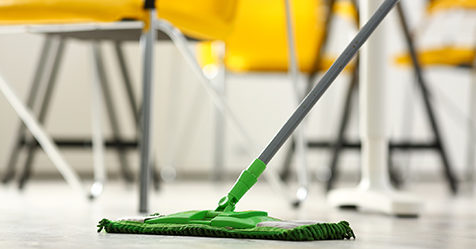Battery selection is one of the most important decisions for ensuring optimal operation of floor care equipment—from scrubbers and burnishers to vacuums and floor sweepers. Installing the proper battery will increase your equipment’s reliability, enable it to achieve optimal cycle times, and improve its lifetime value.
Purchasing the most appropriate battery is based on the type of floor care equipment, how it will be used, and where it will be operated. The proper battery can have a positive impact on the bottom line. More than US$2,000 can be saved over the lifetime of the equipment by selecting a battery that will perform reliably and at a high level. The savings are based on the cost of purchasing four 6V AGM batteries, an on-site visit from a service technician, and the rental of a walk-behind scrubber.
To minimize the risk of a dead battery, facility managers, building service contractors (BSCs), and facility services managers need to select the best battery electrolyte chemistry for their applications. To reap optimum return on investment (ROI), they also need to have confidence that the batteries will withstand the demanding environments in which they will operate, charge quickly and consistently, and come with a comprehensive warranty.
Consider battery technologies
Optimizing battery performance requires understanding the various technologies. There are three main categories of motive (used for movement or transportation) batteries typically used in floor care equipment, each with benefits for certain applications.
Flooded lead acid (FLA): FLA batteries are rugged and provide reliable performance when properly maintained. Additionally, FLA batteries are often the most affordable option. Because FLA batteries are not sealed, they must be kept upright to avoid the spilling of electrolyte. During the charging process, FLA batteries consume water and release hydrogen gas, which must be properly vented. The water consumed during charging must be periodically replaced based on equipment usage.
FLA batteries are typically selected when cost is the main priority. One caveat with FLA batteries is that operators must know how to maintain them. With proper maintenance and charging, FLA batteries can provide years of reliable service in floor care equipment.
Valve-regulated lead acid (VRLA): High-precision VRLA batteries are available in absorbed glass mat (AGM) or gel cell types. Both have long cycle lives and are fully recyclable. Unlike FLA batteries, they are sealed so they can be mounted on their sides and require less ventilation. AGM batteries have strong resistance to shock and vibration. It is very important that AGM batteries are not severely overcharged, as this will cause the battery to rapidly dry out.
VRLA batteries are well suited for cost-conscious applications where little or no maintenance can be performed. They are best for applications with extreme temperatures, such as cold storage or hot/cold climates. Sensitive applications, such as hospitals, food or metal manufacturing facilities, and soft floor settings, are typical environments where VRLA batteries are used. AGM batteries are best suited in applications where high discharge currents are needed. Gel batteries are more suited for longer, lower current cycles.
Lithium-ion: Maintenance-free lithium-ion batteries offer the longest cycle life and best value proposition. Lithium-ion batteries are acid-free. They do not require water and users don’t have to worry about corrosion, acid drips, or charging fumes. Lithium batteries are fast charging and lightweight compared to other battery technologies.
If floor care equipment will be kept more than five years, lithium-ion is the best choice for achieving optimum total cost of ownership (TCO). Lithium-ion is also preferred if the floor care equipment is used during multiple shifts, and when long run times and fast charging are required. If the floor care equipment has advanced operational features that drain its battery, lithium-ion is preferred.
Achieve optimal ROI
Selecting the proper battery technology is only one step in the evaluation process. You must also consider cycle life, extreme deep cycling capacity, and reliability.
Deep cycle batteries used in floor cleaning machines are often heavily cycled at partial state-of-charge (PSoC). Regularly operating at PSoC can quickly diminish the overall life of a battery, which results in frequent and costly battery replacements.
Certain batteries, such as the one shown in figure 1, feature a specialized carbon-based formula and advanced technologies that address PSoC. Such batteries provide up to 15% improved cycle time when the batteries operate in PSoC, enhancing overall battery life in applications where the batteries are undercharged on a regular basis.
Batteries that have undergone extensive testing and meet industry standards related to vibration and shock will prove to be highly reliable. A battery with a long warranty creates confidence that the battery choice will maintain performance benchmarks for the life of the floor care equipment.
It’s also important to consider the manufacturer when conducting battery evaluation. A supplier with a portfolio that has multiple battery technologies will provide unbiased insight as to the best choice for the particular use.




